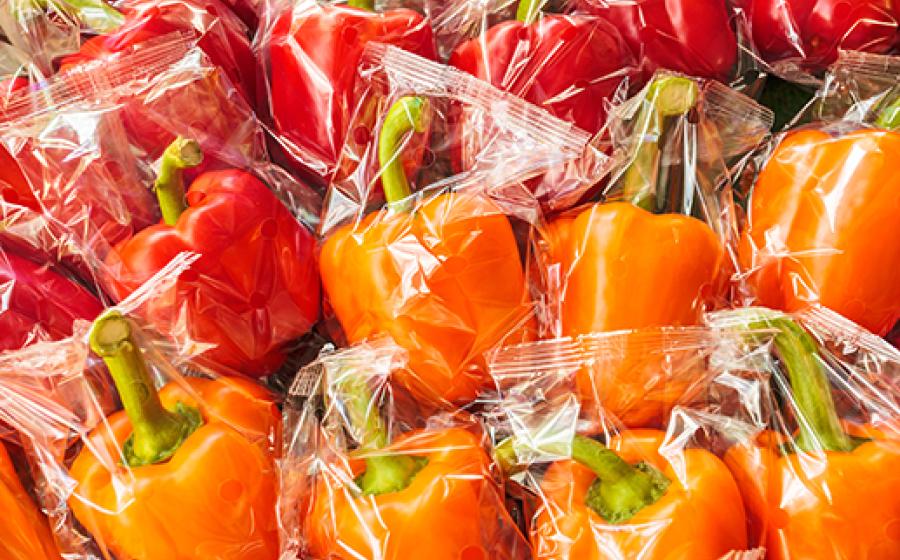
Environmental groups have strengthened calls for thorough regulatory review of per- and polyfluoroalkyl substances (PFASs) in food contact materials (FCMs) after discovering that the US FDA cleared several PFASs for plastic food packaging manufacture in the past decade.
The NGOs’ findings – reached through a Freedom of Information Act (Foia) request – follow the detection of PFAS contamination in fluorinated polyethylene containers, which prompted EPA and FDA investigations and the latter’s warning against unauthorised fluorination.
In a 12 August blog, the Environmental Defense Fund (EDF) and Green Science Policy Institute (GSPI) detailed their discovery of seven food contact substance notifications (FCNs), granted between 2002 and 2016, for four PFAS processing aids for plastic packaging such as bottles and wraps. Permitted at concentrations up to 2000 parts per million (ppm), the compounds "reportedly improve polymer extrusion, reduce build-up on the injection mould and improve surface roughness, among other technical effects", the organisations said.
"While FDA has been focused on PFAS contamination from the environment and its use in paper packaging, it has been allowing PFAS-laden plastic to also contaminate the food supply without considering the cumulative effect of their dietary exposure on people’s health," they said.
EDF, GSPI and other non-profits petitioned the agency in June to ban new PFASs and revisit already permitted ones by factoring in accumulating impacts from the chemical class.
The American Chemistry Council (ACC) said "the EDF blog relies on the misleading assumption that the mere presence of any per- and polyfluoroalkyl substance represents a health risk; however, nowhere in the text is evidence of this presented".
Different PFASs possess "unique properties and uses, as well as environmental and health profiles", the trade association told Chemical Watch. "It is neither scientifically accurate, nor appropriate, to group them all together."
Foia results
Tom Neltner, the EDF’s chemicals policy director, said he filed the Foia request for the FCNs after packaging makers disclosed during an early 2020 workshop that they utilised PFASs to create plastic.
The blog authors noted that in one case, the documents showed exposure from the compounds’ migration into food could be above some PFASs’ safe drinking water threshold.
"The FDA was allowing food to be contaminated at significant levels even though the agency was simultaneously realising there were problems," Mr Neltner said. "We were dismayed, but given the agency’s track record with FCNs, not particularly surprised."
The non-profits added that the agency overlooked PFAS exposure from plastics that help store, process and transport food ingredients. And the agency failed to adhere to its regulation requiring class-based evaluation of substances with comparable toxicological outcomes, they said.
Plastic processing aids and fluorinated polyethylene are the "latest additions to a growing list of sources of ‘forever chemicals’ in the diet", the NGOs said. The agency should assess all these compounds’ total impact across their entire range of applications, they said.
PFAS pollution is widespread, the organisations said, and "overall exposure adds up quickly" due to bioaccumulation, which increases possible hazardousness.
‘Rigorous safety assessment’
The FDA told Chemical Watch the agency "conducts a rigorous scientific safety assessment of information submitted" before permitting any food contact substance.
The agency examines "the nature of the packaging components, the potential cumulative exposure to the food contact substance into the food and beverages (from all food contact substances that the FDA has reviewed) and safe levels of exposure", it said.
The "safety assumptions embedded in our exposure assessments mean that the actual dietary exposure from the approved food contact use is well below our cumulative dietary exposure estimate," the agency said. "Where new information raises safety questions, the FDA may revoke authorisations if the agency is no longer able to conclude that there is a reasonable certainty of no harm from the authorised use."
3M, which initiated four of the FCNs under its name or that of subsidiary Dyneon, told Chemical Watch "certain fluoropolymers used as components in polymer processing additives (PPAs) are critical to the efficient production of lightweight and high-quality flexible plastic packaging". According to 3M, their great molecular weight and low mobility decrease environmental and health concerns.
The FDA’s authorisations demonstrate its "determinations that those chemicals are safe for their intended uses, and as indirect food contact substances, should be available for use in flexible plastic food packaging", the corporation said.
The other FCN submitters, Daikin and Arkema, did not immediately respond to requests for comment



